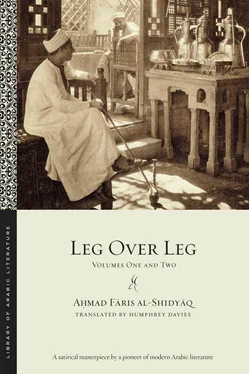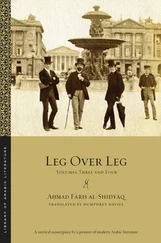2.8.5
To proceed: Master, I am come to these territories bearing a bag that has broken my back and in my patience made a crack , and I have found none to relieve me of even a little of the encumbrance and can see no way to rid myself of it without assistance . In the midst of this inky darkness I have been guided to your kindly light , informed that you alone, to the exclusion of any other wight , can free me from my plight . Will you then permit me to visit your noble circle and to you myself unburden of that from which I endlessly suffer, and of my dolorous hurt, in person ? On you alone can I rely to take the hand of one without ally , knowing that, should you but look on him with favor, you’ll make his wishes come true and help him obtain all he has in view , and should you take him to yourself, he will thenceforth owe you a debt of gratitude and of thankfulness for your pious attitude . Such a one thus asks this of you as a petitioner in the forecourt of your dignity , and your willingness to oblige will be but further token of your kindness and far-reaching benignity . Farewell.
For the address he wrote:
To be honored by the fingertips of my most generous, most nobly descended, most imposing, most unique, most bountiful, most fortunate, most exemplary, most well-guided, most complete, most glorious, most sublime master, Khawājā So-and-so, may God preserve him for ever in splendor and ease!
2.8.6
When this message reached the khawājā in question and the latter perused the affected similes employed in the elaboration of the greeting, he couldn’t contain his laughter and guffaws and said to one of those seated with him in his salon, a man of culture, “Glory be! I find that most of our writers abandon themselves in their presentation of greetings and salutations to the addressee as unrestrainedly as if they were presenting him with the throne of Bilqīs or Our Master Sulaymān’s ring, 482comparing him to things he doesn’t resemble, drowning him in immoderate praise, and boiling him over the fires of excess, with the result that he ends up soaked and singed. Sometimes they come up with two phrases that are identical in meaning, such as when the writer of this epistle here says ‘object of the entreaties of the oppressed, protector of those who’ve suffered wrong.’ Then, as soon as they move from salutation to content, they write excellently. I don’t know why the writers of compositions have thought good to waste their time on such hackneyed metaphors and similes and on composing phrases of identical sense, when the scholar can, with ease, demonstrate his erudition in a single phrase if it’s well worded and effective at conveying the meaning. Twelve hundred years have passed, and we still find Zayd chewing over what ʿAmr 483uttered and ʿAmr masticating what Zayd said. This vice has entered the veins of every writer.
2.8.7
“When it comes to eulogizing the addressee in the address with ‘the most sublime,’ ‘the most glorious,’ ‘the most fortunate,’ ‘the most exemplary,’ and the like, there is a particular issue. The custom of delivering the mail via the postal service is not observed in our country; it is sent with persons who have no knowledge of the roads or the neighborhoods, which, as you will be aware, are innocent of any written signs. If the letter is borne by a man who doesn’t know how to read, he will ask everyone he meets on the road about the addressee by name. If the address doesn’t give a clue as to who he is, any who read it will be confused, for many share the same name, though they may differ in fine qualities and morals. In addition, it may happen that the one who is to deliver the letter, after asking more one than one person the name of the addressee and finding all of them to be illiterate and having wasted half his day searching for the way and and after failing in the end to be guided to it, finds a servant in the street watching him. As soon as he sees him, then, he seizes hold of him and sends him off in some direction he thinks correct. The letter stays with the new messenger for a while, and then he passes it on to someone else, and that someone else may face the same problems he did and so pass it on to another, etc., etc. One should therefore go into great detail when describing the addressee in the address.”
2.8.8
His companion then said, “In that case, dear sir, all the addressee’s characteristics should be mentioned in the address. If the addressee is, for instance, beautiful, intelligent, rich, shapely, of large turban, and broadly cummerbunded, he must be referred to as ‘the beautiful, the intelligent, the rich,’ etc.” Responded the other, “As far as describing someone as beautiful, rich, and so on is concerned, to do so is a grave offense against him, 484and as far as the rest, such as the size of his turban and the breadth of his cummerbund, is concerned, these are non-specific characteristics, for everyone’s on the same footing in such matters. How much more appropriate it is to employ other forms of address, as you will soon see, God willing. Such other forms may on occasion make one laugh — as when one describes a man as being characterized, for example, by hypertrichotism, or hirsutism, or triticoidism, or hypermetacarpalism, or superrhysism, or partial hirsutism, or pyknism, or ectomorphism, or mesomorphism, or endomorphism, or somatomegalism, or exophthalmism, or planirostrism, or glabrotism, or acromegalism, or macrocephalism, or macrolabialism — but are better than others that create confusion over the addressee’s distinguishing features. I’m told that many letters containing important messages that don’t spell out the address explicitly and don’t have directions have been opened so as to discover for whom they’re intended, and this has been a cause of injury to both sender and recipient.” Here ends their dialogue.
2.8.9
Be informed here that, when the the khawājā in question received the Fāriyāq’s epistle, he was sick and so did not answer immediately. As a result, the Fāriyāq was left waiting days for his reply and finally came to believe, being unaware, as he was, of the reason, that all his rhyming had gone for nought, and during this time he was prey to constant worry and anxiety. I shall leave him now in that state, waiting for an answer, and leave too the one who is to send it to take his medicine and get better, and turn aside for a little to the ranks of titles and titles of rank then recognized, on condition that you allow me to move on to a new chapter, namely…
CHAPTER 9: THAT TO WHICH I HAVE ALLUDED
2.9.1
The definition of a title in the minds of Orientals is that it is an insignificant fleshy protuberance or a flap of skin, 485or an extra bag hung onto an already loaded camel, that dangles from a man’s essential being. The author of the Qāmūs has said, “ ʿalāqā means ‘titles,’ because they are hung onto people ( li-annahā tuʿallaqu ʿalā l-nās ).” To Occidentals, which is to say Franks, it is a second skin that wraps itself around the body. Our commentary on this is that an insignificant protuberance may be cut off and totally excised with ease, and the same goes for the skin tag and the extra bag, which may be overturned or inverted; the second skin, however, cannot be removed from the body without harm to its owner. Our super-commentary — for every commentary must have a super-commentary, however incomprehensible — is that the skin flap is not hereditary among the people of the East, or only rarely so (and every rule must have its exceptions). Among Franks, on the other hand, the second skin is passed from older to younger by inheritance. Examples of the former are the titles Bāshā (“Pasha”), Bēh (“Bey”), Afandī (“Effendi”), and Aghā (“Agha”). Even Malik (“King”) is limited in its application to the person so titled and is not extrapolated from him to his son, for the son of a minister or a king may be a clerk or a sailor. Among Franks, however, it is incorrect to refer to the son of a marquis as a “marquisito” or as being “marquisate.” 486Regardless of the fact that the former is finite and the latter infinite, the essential meanings of “skin flap” and “second skin” may converge at a certain point, in that both generally have their origin in an itch that affects the bodies of those in positions of power because of the aggravation caused them by their blood. Such aggravation cannot be quieted, and such itches cannot be scratched, without creating either a flap or a second skin.
Читать дальше












